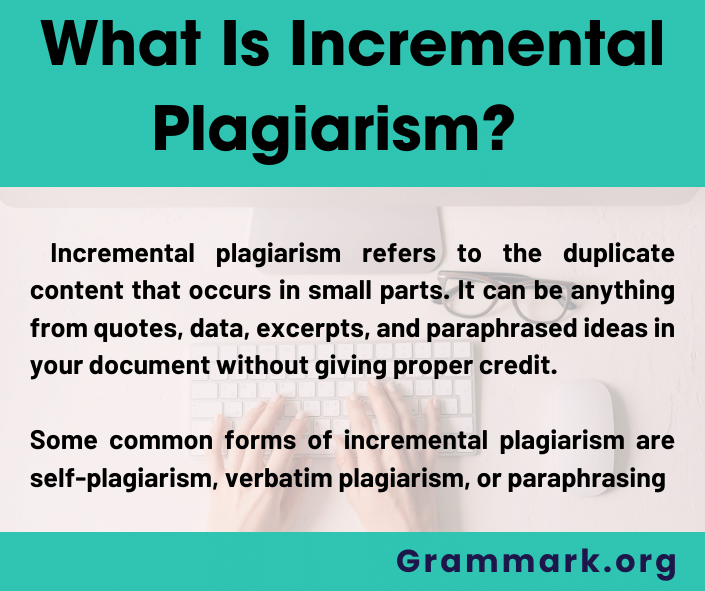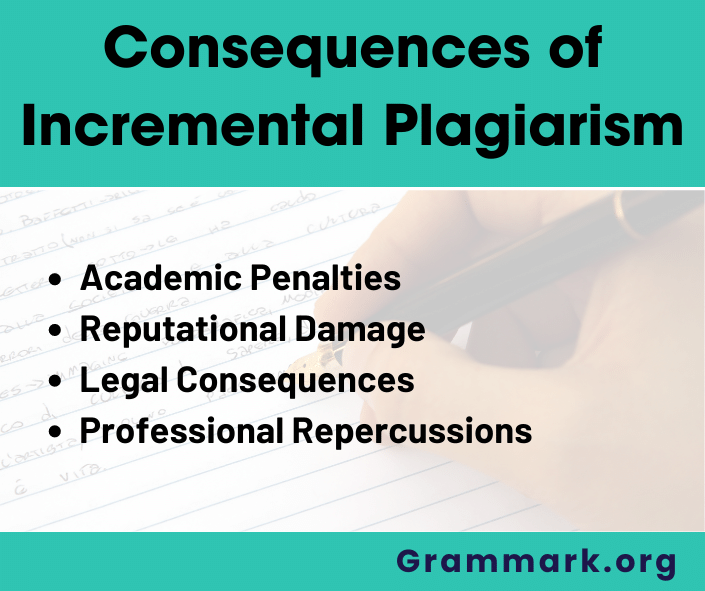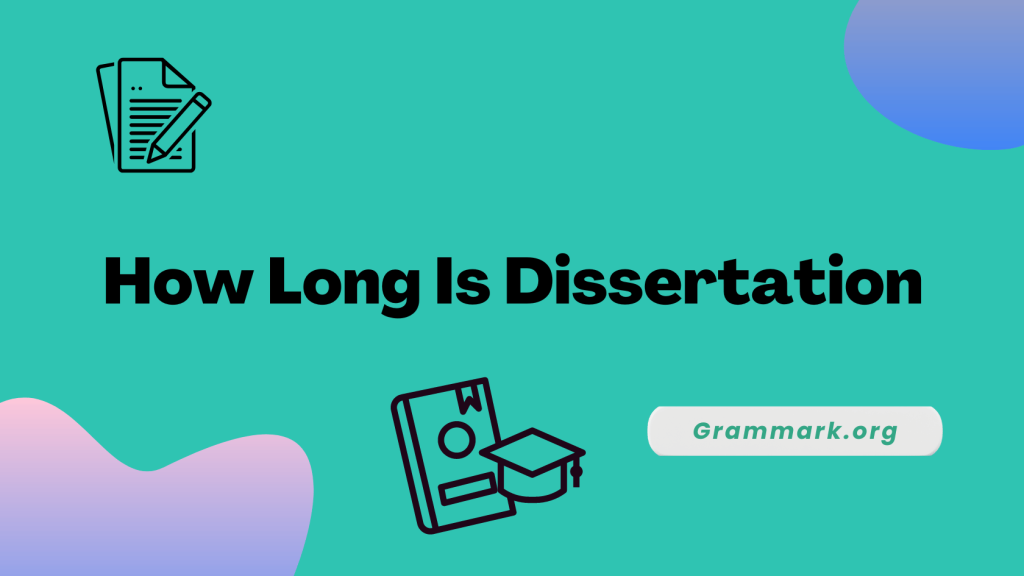Plagiarism appears in many forms, including incremental plagiarism and complete or patchwork plagiarism. And whether you’re a writer, student, or academician, getting caught in plagiarism can significantly dent your academic and professional career.
This article will discuss incremental plagiarism, a form of subtle plagiarism that appears sparingly throughout a written piece.
Learn how it can impact your academic or professional career and how it differs from other types of plagiarism.
Understanding Incremental Plagiarism
The literal meaning of Incremental is “adding on in small amounts.” Incremental plagiarism refers to the same thing where duplicate content occurs in small parts.
It can be anything from quotes, data, excerpts, and paraphrased ideas in your document without giving proper credit. It might also involve copying small portions of text or ideas from various sources over several documents or assignments rather than outright copying large sections in a single instance.

Some common forms of incremental plagiarism are self-plagiarism, verbatim plagiarism, or paraphrasing.
Self-plagiarism occurs when you repurpose content from your published works without citation.
Verbatim plagiarism refers to copying and pasting some portion of your text. Even if you may alter or replace a few words or sentences, your work won’t be considered original.
Lastly, paraphrasing means using the same idea from another source but sprucing it up with your own words.
Incremental plagiarism can be subtle and can get overlooked easily. Sometimes, this type of plagiarism occurs unintentionally when the writer forgets to mention the source of a quotation below.
But regardless of whether it’s intentional or unintentional, any form of plagiarism, including incremental plagiarism, should be avoided at all costs.
Levels of Incremental Plagiarism
Incremental plagiarism can range from minor to serious. Here are some levels:
- Low: Borrowing a few phrases or sentences without proper citation
- Medium: Mixing your own ideas with copied content from several sources
- High: Most of your work is made up of bits and pieces from other sources
- Severe: Your entire piece is a patchwork of others’ work with little to no original content
Remember, any level of plagiarism is wrong. It’s always best to use your own words and give credit when you use others’ ideas.
Incremental Plagiarism Examples
Incremental plagiarism is a sneaky form of academic dishonesty. It happens when someone builds up borrowed content gradually, often without realizing how much they’ve taken from others. Here are some examples:
- Essay writing
A student is writing a history paper. They start by using their own words, but as they research, they begin inserting sentences from different websites. By the end, their essay contains bits from ten different sources, none of which are properly cited.
- Research paper
A scientist is writing about a new discovery. They use the introduction from one paper, the methodology from another, and the discussion from a third. They change a few words here and there, thinking this makes it original.
- Blog post
A blogger is writing about healthy eating. They take a paragraph about vitamins from one health website, a list of foods from another, and some diet tips from a book. They mix these with their own writing, creating a patchwork of uncredited sources.
- Business report
An employee is preparing a market analysis. They copy data from various industry reports, use phrases from competitors’ websites, and incorporate sections of old reports from their company. The final product looks original but is mostly borrowed content.
- Thesis writing
A graduate student is working on their thesis. Over months of writing, they gradually incorporate ideas and phrases from their extensive reading without proper attribution. By the end, significant portions of their work are unintentionally plagiarized.
These examples show how incremental plagiarism can occur in various types of writing and settings. Although it’s often unintentional, the result is still a piece of work that’s not fully original and fails to properly credit sources.
How is Incremental Plagiarism Different From Other Forms of Plagiarism?
Let’s now explore some other forms of copied content and how they are different from incremental plagiarism:
1. Incremental vs. Global Plagiarism
Global plagiarism is entirely different and a more serious instance of duplicate content. While incremental plagiarism copies bits and pieces of someone else’s work, global plagiarism is more straightforward and blatant.
It involves completely copying and presenting an entire work or a significant portion of someone else’s work as one’s own without giving any credit or citation.
This can include copying entire essays, research papers, or substantial sections of text without permission or proper acknowledgment.
If you get a paper or a blog post written by someone else and published under your name, it will also come under global plagiarism.
2. Incremental vs. Patchwork Plagiarism
The terms incremental plagiarism or patchwork plagiarism are used interchangeably. There isn’t a huge difference between the two because they both refer to the act of gradually and subtly plagiarizing content from various sources.
It involves copying sentences, paragraphs, or sections from different sources and assembling them into a new document with the writer’s own words.
However, patchwork plagiarism often uses the content as it is. However, in the case of incremental plagiarism, the writer rewrites the sentences or shuffles the words and copies content from multiple sources.
If you want to know more about patchwork plagiarism, read our guide to know the consequences for the same.
3. Incremental Plagiarism vs. Accidental Plagiarism
Accidental plagiarism, as the name suggests, occurs unintentionally. It happens when an individual uses someone else’s work, ideas, or words without proper citation or attribution due to a lack of knowledge or understanding of proper citation practices.
Accidental plagiarism can also occur due to carelessness or oversight when citing sources. It occurs mostly among new writers who are unaware of the rules of academic integrity.
But as you know, in the case of incremental plagiarism, the writer deliberately copies information from various sources.
What Can be the Consequences of Incremental Plagiarism?
Even though incremental plagiarism is not as serious as global plagiarism, but may still have significant negative impacts on the plagiarizer’s academic or professional reputation.

If caught, the writer may have to face consequences like:
- Academic Penalties
Academic institutions take plagiarism very seriously.
If a student is caught engaging in incremental plagiarism, they may face various academic penalties, ranging from receiving a failing grade on the assignment or course or even academic probation.
- Reputational Damage
Plagiarism can tarnish a writer’s or a student’s academic reputation, making it challenging for them to be trusted by professors and peers in the future.
This can have long-term effects on their academic and professional endeavors.
- Legal Consequences
In some cases, plagiarism can lead to legal issues, especially if copyrighted material is used without permission.
Copyright holders may pursue legal action against the plagiarizer, resulting in financial penalties or other legal consequences.
Tip: Also, know whether plagiarism is illegal.
- Professional Repercussions
In a professional setting, instances of incremental plagiarism can damage an individual’s credibility and reputation, making it difficult to secure employment or advance in their career.
Plagiarism, be it global or incremental, only brings damage to your reputation. Therefore, you must try avoiding it at all costs.
Tips to Avoid Incremental Plagiarism
It is not always intentional, and to ensure you avoid it at all costs, follow the mentioned tips:

- Keep Proper Track of the Sources
Keep detailed records of all the sources you use while conducting research or gathering information. This includes noting down the author’s name, publication date, title, page numbers, and other relevant information for each source.
- Use Proper Quotation
When directly quoting text from a source, always use quotation marks to indicate that the words are not your own. Provide an in-text citation and a corresponding bibliography or reference list entry.
- Understand Proper Citation
Familiarize yourself with the appropriate citation style (e.g., APA, MLA, Chicago) required by your institution or publisher if you’re writing academic papers.
Understand how to cite various types of sources, including books, journals, websites, and other digital media, to avoid plagiarism.
- Use a Plagiarism Detection Tool
Run your texts through a plagiarism detection tool like Copyscape, Grammarly, or ProWritingAid to check your works before publishing. These tools can help you identify any instances of plagiarism.
BONUS: We have done a thorough research on Grammarly plagiarism tool. Click here to know our views on the same.
Related Reads:
Final Thoughts!
That’s everything you need to learn about incremental plagiarism, its consequences, and its difference from other forms of duplicate content.
Make sure you follow the tips I shared to avoid incremental plagiarism and prevent getting into any serious legal or reputational repercussions. I have even listed some of the free plagiarism detection tools that would help you detect plagiarism.
FAQs
Yes, it is unethical. Intentionally copying content from various sources without proper attribution leads to deception and misrepresentation of original work.
Complete or global plagiarism is the most serious form of plagiarism because the writer deliberately copies another writer/author’s work.
5-word plagiarism refers to a specific type of plagiarism where a person copies a very short segment of five or fewer words from a source without proper citation.


